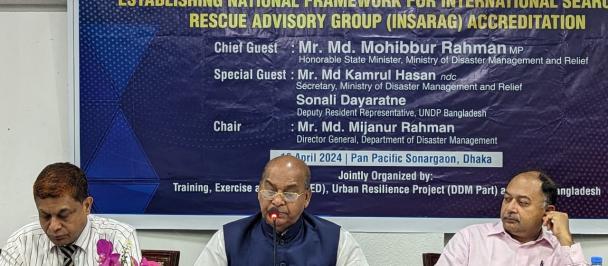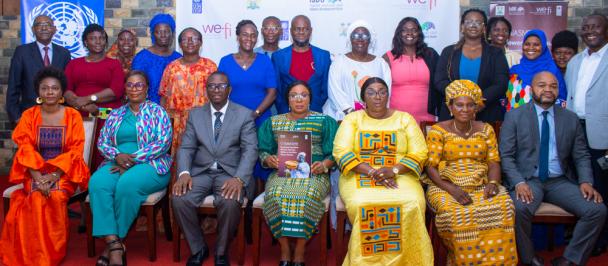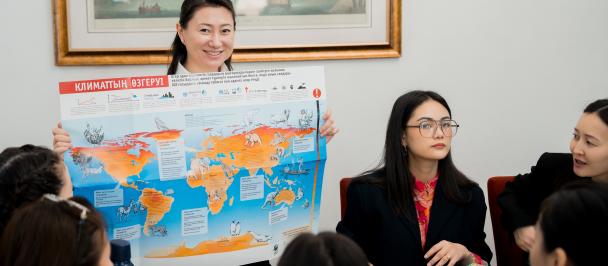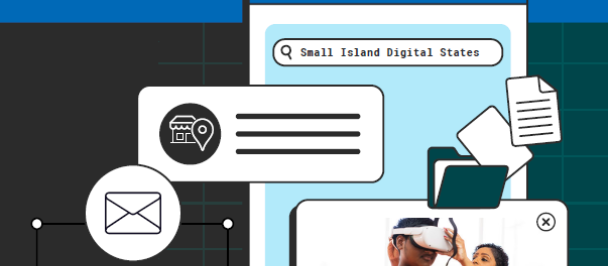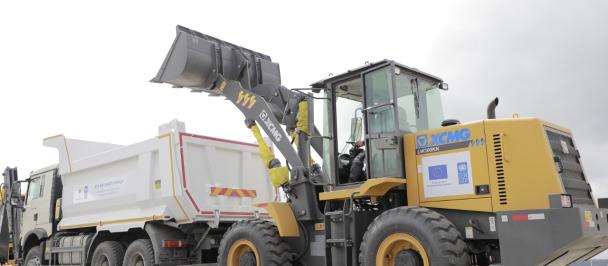Statement by Mr. Tegegnework Gettu, Associate Administrator, UNDP, United Nations Security Council Open Briefing on Myanmar.
Mr. President, Mr. Secretary-General, Distinguished Delegates,
Thank you for the opportunity to address the Council.
UNDP continues to share the international community’s concerns about the situation in Rakhine State and the plight of the Rohingya people. We fully align ourselves with the need to create conditions for the voluntary, safe, dignified and sustainable return of refugees from Bangladesh as foreseen in the Memorandum of Understanding signed between the Government of Myanmar, UNHCR and UNDP.
Myanmar faces multiple transitions today regarding the ongoing peace process, economic liberalisation and democratic reforms, and it is within this context that the root causes of inequality and discrimination against the Rohingya population need to be addressed. Competition for land and resources in Rakhine, which is the second poorest state in the country, discriminatory laws and institutions, as well as inter-communal mistrust and tensions contribute to some of these root causes.
Creating sustainable conditions for voluntary return requires comprehensive and durable solutions. Addressing the significant development challenges of all communities in Rakhine and removing local orders that restrict the freedom of movement and access to basic services, are critical in creating such conditions and are important. It also requires that every refugee have the freedom to decide when to return based on a free and informed choice.
Dealing with these issues also may go a long way towards building greater inter-communal confidence and trust among the people of Rakhine state.
As noted by the Secretary-General, the recommendations of the Rakhine Advisory Commission provide a roadmap for addressing these issues. Recently the Government of Myanmar convened the United Nations system to take stock of the implementation of these recommendations, which was a positive step.
Mr. President,
As a first step towards creating conducive conditions for voluntary return in Rakhine State, UNDP and UNHCR have been working closely to begin implementation of the tripartite Memorandum of Understanding.
We have reinforced our capacity on the ground to begin this important work. We have also jointly held a range of preparatory consultations with the Government of Myanmar at all levels, including the Technical Working Group formed by the Government to support the implementation of the MOU.
In early July, we jointly undertook a first, albeit symbolic visit to the northern part of Rakhine, which was followed by a joint familiarisation field visit with the Technical Working Group later that month. We welcomed these preliminary measures taken by Myanmar and look forward to moving ahead constructively and meaningfully.
However, effective access and streamlined procedures are essential for us to access entire village tracts and undertake area-based programming that are inclusive, in line with conflict-sensitive methods, and that build social cohesion. This remains outstanding.
Free and independent consultations with all communities to identify their needs is a necessary step to design and deliver community-based, quick-impact projects that address livelihoods and basic needs, to build trust within and between communities. It also lays the foundation for planning longer-term sustainable development, as foreseen in the MOU. This, together with the freedom of movement and a pathway to citizenship, will be critical benchmarks that must be achieved.
In addition to the MOU implementation, UNDP and UNHCR and several other UN agencies have been working in other parts of Rakhine State to implement a wide-ranging development and humanitarian assistance initiative, with major donor support. Part of the broader solution in Rakhine lies in tackling some very challenging issues in addition to freedom of movement, such as access to livelihoods, education and health services, respect for the rule of law and the respect, promotion and protection of human rights. UNDP is currently helping to address some of these challenges through support to resilience-based recovery and sustainable development.
Mr. President,
We would like to acknowledge the Government of Bangladesh for their generous hospitality and support to the Rohingya refugees. As anticipated, the monsoon, coupled with the limited resources made available to the UN and its partners to meet the needs of refugees and host communities, have made the living conditions of refugees in Cox’s Bazar very precarious. Creating conditions conducive to voluntary, safe, dignified and sustainable return to Myanmar is a process that requires at least medium-term planning. Continuing to address the needs of all those affected in Cox’s Bazar is a primary important thing to do.
In closing, we wish to underline the importance of pursuing comprehensive and durable solutions, with effective access, freedom of movement and a pathway to citizenship being critical building blocks for the sustainable development of Rakhine State. We reiterate our strong commitment and continued constructive engagement with the Governments of Myanmar and Bangladesh in creating an environment where people of all communities can live together.
Thank you for your attention.

 Locations
Locations